 W
WArms trafficking or gunrunning is the illicit trade of contraband small arms and ammunition, which constitutes part of a broad range of illegal activities often associated with transnational criminal organizations. The illegal trade of small arms, unlike other organized crime commodities, is more closely associated with exercising power in communities instead of achieving economic gain. Scholars estimate illegal arms transactions amount to over US$1 billion annually.
 W
WThe term bagman has different meanings in different countries.
 W
WCarding is a term describing the trafficking and unauthorized use of credit cards. The stolen credit cards or credit card numbers are then used to buy prepaid gift cards to cover up the tracks. Activities also encompass procurement of details, and money laundering techniques. Modern carding sites have been described as full-service commercial entities.
 W
WCattle raiding is the act of stealing cattle. In Australia, such stealing is often referred to as duffing, and the perpetrator as a duffer. In North America, especially in the Wild West cowboy culture, cattle theft is dubbed rustling, while an individual who engages in it is a rustler.
 W
WExtortion is the practice of obtaining benefit through coercion. In most jurisdictions it is likely to constitute a criminal offense; the bulk of this article deals with such cases. Robbery is the simplest and most common form of extortion.
 W
WA fence, also known as a receiver, mover, or moving man, is an individual who knowingly buys stolen goods in order to later resell them for profit. The fence acts as a middleman between thieves and the eventual buyers of stolen goods who may not be aware that the goods are stolen. As a verb, the word describes the behaviour of the thief in the transaction. This sense of the term came from thieves' slang tracing from the notion of such transactions providing a defence against being caught. The term remains in common use in all major dialects of modern English, all of which spell it with a "c" even though the source word in some dialects is now spelled defense.
 W
WForgery is a white-collar crime that generally refers to the false making or material alteration of a legal instrument with the specific intent to defraud anyone. Tampering with a certain legal instrument may be forbidden by law in some jurisdictions but such an offense is not related to forgery unless the tampered legal instrument was actually used in the course of the crime to defraud another person or entity. Copies, studio replicas, and reproductions are not considered forgeries, though they may later become forgeries through knowing and willful misrepresentations.
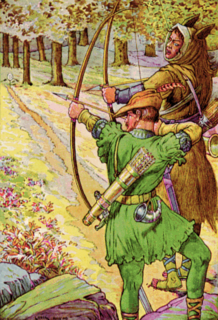 W
WA henchman, or "hencher", is a loyal employee, supporter, or aide to some powerful figure engaged in nefarious or criminal enterprises. A henchman is typically relatively unimportant in the organization, a minion, whose value lies primarily in their unquestioning loyalty to their leader. The term henchman is often used derisively to refer to an individual of low status who lacks any moral compass of their own.
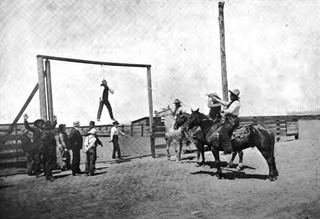 W
WHorse theft is the crime of stealing horses. A person engaged in stealing horses is known as a horse thief. Historically, punishments were often severe for horse theft, with several cultures pronouncing the sentence of death upon actual or presumed thieves. Several societies were formed in the United States to prevent horse theft and apprehend horse thieves. However, horse theft continues to occur throughout the world, as horses are stolen for their meat, for ransom, or in disputes between their owners and other persons. Horse theft today is comparable to automobile theft, a crime punishable by felony jail time. Both horses and cars are valuable commodities.
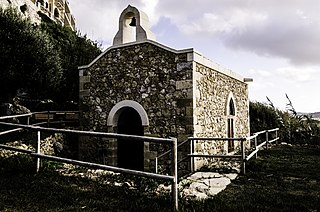 W
WIllegal construction is construction work without a valid construction permit. Besides the potential technical hazards on uncontrolled construction sites and in finished buildings, illegal building activity can be a major environmental violation when the works encroach upon preserve areas like nature reserves. Likewise, illegal building can have serious political implications when it is practiced as landgrabbing or for illegal settling in foreign territories.
 W
WIllegal logging is the harvest, transportation, purchase or sale of timber in violation of laws. The harvesting procedure itself may be illegal, including using corrupt means to gain access to forests; extraction without permission, or from a protected area; the cutting down of protected species; or the extraction of timber in excess of agreed limits. Illegal logging is a driving force for a number of environmental issues suc as deforestation, soil erosion and biodiversity loss which can drive larger scale environmental crisis such as climate change and other forms of environmental degradation.
 W
WIllegal mining is mining activity that is undertaken without state permission, in particular in absence of land rights, mining licenses, and exploration or mineral transportation permits.
 W
WThe ivory trade is the commercial, often illegal trade in the ivory tusks of the hippopotamus, walrus, narwhal, mammoth, and most commonly, African and Asian elephants.
 W
WA mule or courier is someone who personally smuggles contraband across a border for a smuggling organization. The organizers employ mules to reduce the risk of getting caught themselves. Methods of smuggling include hiding the goods in vehicles or carried items, attaching them to one's body, or using the body as a container.
 W
WOrganized crime is a category of transnational, national, or local groupings of highly centralized enterprises run by criminals to engage in illegal activity, most commonly for profit. Some criminal organizations, such as terrorist groups, are politically motivated. Sometimes criminal organizations force people to do business with them, such as when a gang extorts money from shopkeepers for "protection". Gangs may often be deemed organized crime groups or, under stricter definitions of organized crime, may become disciplined enough to be considered organized. A criminal organization or gang can also be referred to as a mafia, mob, ring, or syndicate; the network, subculture, and community of criminals may be referred to as the underworld. European sociologists define a “mafia” as a type of organized crime group that specializes in the supply of extra-legal protection and quasi-law enforcement. Gambetta's classic work on the original “Mafia”, the Sicilian Mafia, generates an economic study of organized crime groups, which exerts great influence on studies of the Russian mafia, the Chinese triads, Hong Kong mafia, and the Japanese yakuza.
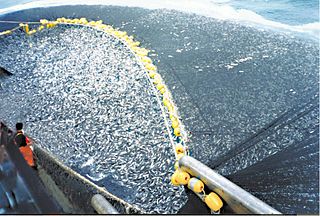 W
WOverfishing is the removal of a species of fish from a body of water at a rate that the species cannot replenish, resulting in those species becoming underpopulated in that area. In a Food and Agriculture Organization of the United Nations 2018 report, the FAO estimates that one-third of world fish stocks were overfished by 2015. Over 30 billion euros in public subsidies are directed to fisheries annually.
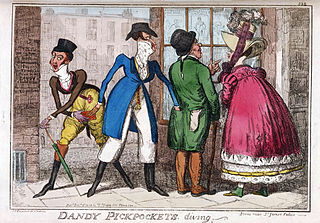 W
WPickpocketing is a form of larceny that involves the stealing of money or other valuables from the person or a victim's pocket without them noticing the theft at the time. It may involve considerable dexterity and a knack for misdirection. A thief who works in this manner is known as a pickpocket.
 W
WPiracy is an act of robbery or criminal violence by ship or boat-borne attackers upon another ship or a coastal area, typically with the goal of stealing cargo and other valuable goods. Those who conduct acts of piracy are called pirates, while the dedicated ships that pirates use are called pirate ships. The earliest documented instances of piracy were in the 14th century BC, when the Sea Peoples, a group of ocean raiders, attacked the ships of the Aegean and Mediterranean civilizations. Narrow channels which funnel shipping into predictable routes have long created opportunities for piracy, as well as for privateering and commerce raiding. Historic examples include the waters of Gibraltar, the Strait of Malacca, Madagascar, the Gulf of Aden, and the English Channel, whose geographic structures facilitated pirate attacks. A land-based parallel is the ambushing of travelers by bandits and brigands in highways and mountain passes. Privateering uses similar methods to piracy, but the captain acts under orders of the state authorizing the capture of merchant ships belonging to an enemy nation, making it a legitimate form of war-like activity by non-state actors.
 W
WProstitution is the business or practice of engaging in sexual activity in exchange for payment. Prostitution is sometimes described as sexual services, commercial sex or, colloquially, hooking. It is sometimes referred to euphemistically as "the world's oldest profession" in the English-speaking world. A person who works in this field is called a prostitute and is a type of sex worker.
 W
WIn historical English law, a sturdy beggar was a person who was fit and able to work, but begged or wandered for a living instead. The Statute of Cambridge 1388 was an early law which differentiated between sturdy beggars and the infirm poor. The Vagabonds and Beggars Act 1494 listed restrictions and punishments. In the 1530s and into the 1540s many English monasteries were closed, reducing resources available to the poor, and in 1531 there was an order issued that justices of the peace could issue licences to those unable to work, making begging by persons able to work a crime. Sometimes men willing to work but unable to find work were lumped into the same category.
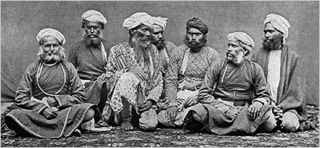 W
WThuggee refers to the acts of the Thugs, who were organised gangs of professional robbers and murderers. The English word thug traces its roots to the Hindi ठग, which means 'swindler' or 'deceiver'. Related words are the verb thugna, from the Sanskrit स्थग and स्थगति. This term, describing the murder and robbery of travellers, was popular in the northern parts of the Indian subcontinent and particularly India.
 W
WTicket resale is the act of reselling tickets for admission to events. Tickets are bought from licensed sellers and are then sold for a price determined by the individual or company in possession of the tickets. Tickets sold through secondary sources may be sold for less or more than their face value depending on demand, which tends to vary as the event date approaches. When the supply of tickets for a given event available through authorized ticket sellers is depleted, the event is considered "sold out", generally increasing the market value for any tickets on offer through secondary sellers. Ticket resale is common in both sporting and musical events.
 W
WValet boy is a term used in some countries to refer to young people who ask for fees from those who park at the roadside. Valet boys usually work in groups, and demand an RM 1-5 "parking fee" from car owners, under an agreement that they will protect the car. It is these very same valets, however, who do the vandalizing should the driver refuse to pay. This "protection" service is a form of extortion. The valet boys do not park the car for the owner; rather they direct drivers into parking lots. This practice has become common in large Brazilian cities, such as São Paulo and Rio de Janeiro, where numerous cases of "valet boys" vandalizing cars are reported every day. Similar schemes are also run in other countries although often the person is not a 'boy'. In the Philippines, however, this scheme is mostly run by street children.